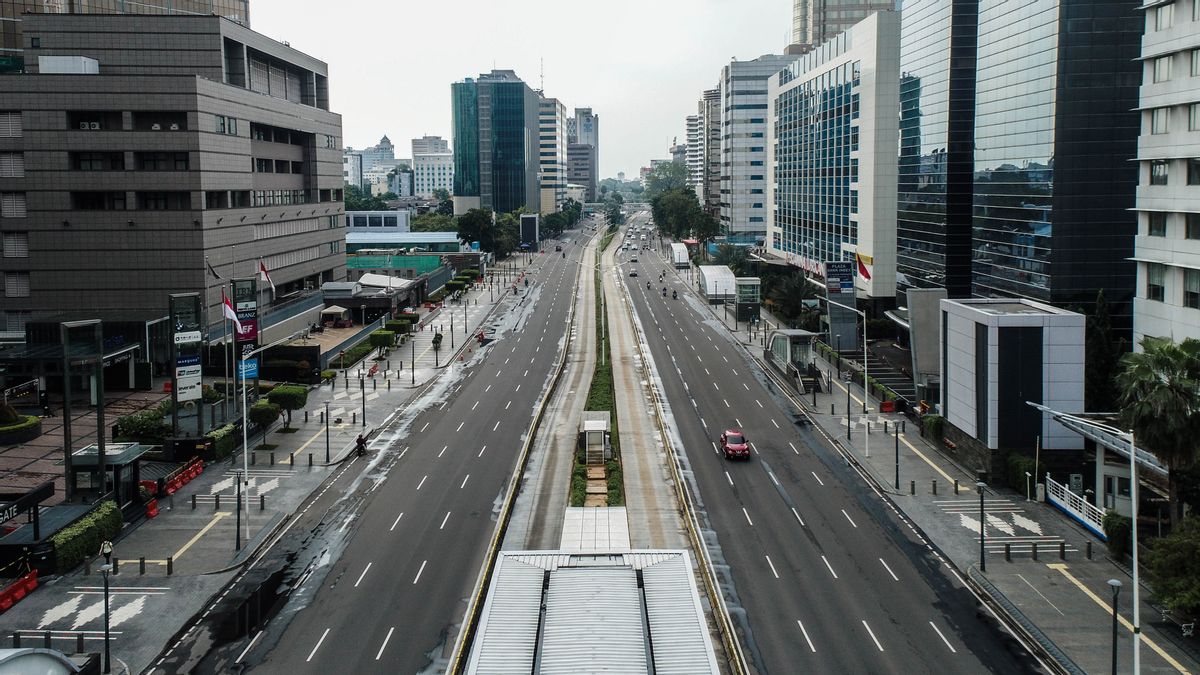JAKARTA - The COVID-19 phenomenon that has hit the entire world has proven to have a major impact on the business world along with the lockdown or lockdown policies taken by a number of countries. The supply chain in various business sectors is disrupted, especially those that still rely on the supply of imported raw materials.
The domino's effect from this condition then hit the banking sector. Many entrepreneurs from various industrial sectors find it difficult to meet their credit installment obligations because their business is quiet. Not infrequently, they are also forced to reduce the number of employees in order to reduce the financial burden that must be borne.
"In our observation, in terms of NPL (Non-Performing Loans) there has been a slight increase, from 2.77 percent in the previous month to 2.89 percent at the current position. However, in terms of recovery rate. it is still very safe, reaching 212.05 percent, "said Chief Executive of the Banking Supervision of the Financial Services Authority (OJK), Heru Kristiyana, in a statement received by VOI, Monday, June 22.
With such a healthy recovery rate for the national banking system, Heru urges all parties not to panic in the face of the upcoming COVID-19 outbreak. Even though vigilance must be maintained so as not to let your guard down when something happens that needs further handling.
"In this case, the government through the OJK has prepared various steps that can be taken according to the developments that will occur in the market. The first phase of relaxation packages have been implemented through POK Number 11. If necessary, further (relaxation) packages are also ready (implemented ), "said Heru.
So far, according to Heru, his party has provided various credit restructuring options that banks can carry out for their troubled credit customers. Some of these options include returning the interest to the principal position, adjusting the credit period, adding facilities to converting credit values to temporary equity investments.
"All of these options are fully submitted to each bank. To each of the financing institutions, so that they can be adjusted to the conditions and characteristics of each credit customer," Heru said.
LiquidityMeanwhile, the President Director of PT Bank Central Asia Tbk (BCA), Jahja Setiaatmadja, stated that the liquidity issue is a crucial matter that must be maintained in order to save the banking industry and even the national economy.
As a fellow business actor, Jahja also invited all banks in Indonesia to prioritize liquidity over company profitability under current conditions.
"We can learn a lot from the crisis that occurred in 1998, when the economy was battered by liquidity that was not available in the market. I remember very well, about a year earlier, almost all of us were very sure that the crisis wave would not reach Indonesia. because our exchange rate at that time was very strong. The US dollar was in the range of Rp. 2,000. But when it jumped drastically to Rp. 15,000 per US dollar, our liquidity was automatically depleted, "said Jahja.
Jahja said that the initial period of the crisis in Indonesia began with the closure of 16 small banks. Because at that time there was no guarantee system currently being implemented by the Deposit Insurance Corporation (LPS), suddenly the closure of that many banks made people panic. Massive withdrawals of money occurred, thus making the available liquidity even more limited.
"Therefore, with the existing experience, we have to unite our enthusiasm to maintain liquidity. Regarding profitability first. We save the chicks first, for later when it is safe, we can share the eggs and enjoy together," said Jahja.
Happy Business ActorsJahja's call for banks to prioritize liquidity and put aside considerations of profitability was welcomed by entrepreneurs. With this commitment from the banking sector, entrepreneurs hope to have more room to improvise and innovate in order to survive amid the pressure of the COVID-19 outbreak.
This includes the option of utilizing the credit restructuring facility for entrepreneurs whose cash flow position is in trouble in line with the sluggish business activities they are engaged in.
"Hearing Pak Jahja's commitment that the main thing now is to work hand in hand to maintain liquidity, we from the world are very happy and happy. This means that we already agree that we should not prioritize each other's profitability. Let us collaborate with each other in order to face (pandemic conditions). together, "said Deputy Chairman of the Indonesian Employers' Association (APINDO), Shinta Widjaya Kamdani.
This commitment to mutual assistance, according to Shinta, is now being held firmly by APINDO, especially to encourage small and medium entrepreneurs to survive amid the limitations of their capital and strength.
For example, in terms of the availability of raw material supplies, sluggish market conditions, and limited mastery of technology among micro, small and medium enterprises (MSMEs).
"Maybe the invitation to go digital is easy for big entrepreneurs, but for those who (their businesses) are small, don't consider it an easy thing. So don't just give tips or calls without seeing who we are dealing with. Apart from stimulus. that has been provided, for MSMEs we also have to look at a lot more things. Regarding the business model, is it still valid or needs to move on. How about their digitization, what assets they have and what are ready to use, "he explained.
According to Shinta, all of this must be checked, and APINDO is very concerned about this. APINDO is firmly committed to helping MSMEs, because if they can survive, the market will also be good again and the Indonesian economy will be saved.
The English, Chinese, Japanese, Arabic, and French versions are automatically generated by the AI. So there may still be inaccuracies in translating, please always see Indonesian as our main language. (system supported by DigitalSiber.id)








